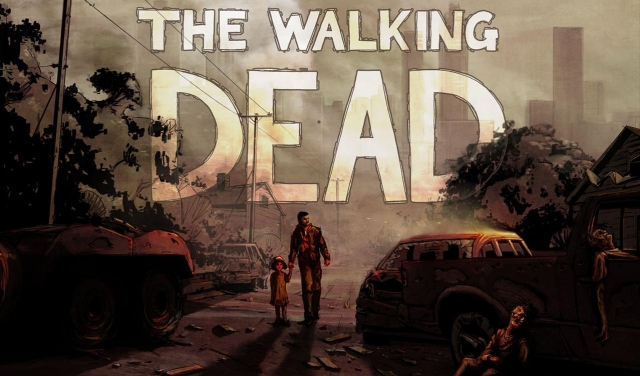
2012: The Year of Choice - Article
by Jake Weston , posted on 15 December 2012 / 4,252 ViewsAs 2012 winds down and we begin the process of looking back on the year, one thing becomes clear: 2012 was simply one of the best years in gaming, period. Not only did most of the usual, big-budget franchise heavy hitters bring their A-game this year, but we also saw a surprising amount of new IPs, series revivals and high-profile adaptations, all bringing unique and innovative gameplay to the table. Reflecting on all of the high profile releases this year, a prominent trend emerges: choice. With games such as Mass Effect 3, Dishonored, XCOM: Enemy Unknown, The Walking Dead, Spec Ops: The Line, Journey, and, surprisingly, Call of Duty: Black Ops II, the releases this year have made 2012 the year of choice.

The first games of this year that come to mind when talking about choice in video games are BioWare’s Mass Effect 3 and Telltale Games' The Walking Dead, both of which use similar dialogue mechanics to provide choices with effects that last across multiple installments. While Mass Effect 3 was the epic culmination of a saga, The Walking Dead was just the beginning; its five episodic chapters are only the start of what Telltale has planned. Despite its now infamous ending controversy (more on that later), Mass Effect 3 showed that choice in gaming could have an impact, while The Walking Dead showed that it could be used to push boundaries, challenge convention and elevate the medium’s capacity for good storytelling.
Though Mass Effect 3 and The Walking Dead featured the most blatant use of choice in gaming, player choice was also heavily incorporated in the genres we typically least expect it, most notably in this summer's Spec Ops: The Line. Pre-release, most of us were willing to write off the series reboot as just another shooter looking to rest on the laurels of Call of Duty and Gears of War. We couldn’t have been more wrong. What we got instead was a thoughtful and incredibly scathing criticism of the modern shooter and of the players who enjoy them. Not only was this explored in the game’s expertly written narrative, but also in the way the choice mechanics were integrated. While none of Spec Ops’ dynamic choice options changed the story in any substantial way, it gave us a window into which we could look at ourselves, and see how we are impacted by the game’s story, not how the game’s story is impacted by us.

However, there is linearity in choice-driven games. At this point, it would be redundant to revisit the controversy surrounding Mass Effect 3’s ending, but those who played this year’s Walking Dead season may have also noticed that, besides one major choice, the ending was basically the same regardless of your actions throughout. But those who would make complaints about this miss the point entirely.
“So what was the point then?”, some may ask. “Why put thought into my choices if they ultimately didn’t affect the narrative in any meaningful way?” Well, that’s where you would be mistaken: they did impact the narrative, but not in the plot. Instead, throughout the course of the Mass Effect trilogy, or The Walking Dead episodes, you formed deep, personal relationships with characters, relationships that other players may not have necessarily had. You may have been buddies with Garrus in Mass Effect, but maybe another player felt more attached to Kaidan. You may have fallen in love with Ashley in Mass Effect and had her stick with you to the bitter end. Others watched her die on Virmire. Even though the plot stayed more or less the same by the time the credits rolled, we still each personally took something from these experiences. These experiences were, as Telltale Games puts it, “tailored” for us. In other words, we may go out to have a suit fitted for us, but ultimately, we’re not the ones who are making the suit. These games aren’t about how our choices affect the story, it’s how the story affects our choices; it’s about how our choices affect us.
It seems that players want developers to make games with stories that are completely dependent on our actions. However, what most players don’t realize is that this at odds with good storytelling. Without narrative cohesion, themes, and pacing to fall back on, games that allow choice to chart the course of the plot are essentially glorified choose-your-own adventure novels. The interactive nature of games SHOULD be molded to fit our experience, but it is impossible for us to dictate the direction they take to good effect.
One needs to look no further than Dishonored to see why this is the case. While Dishonored presented us with one of the most unique, painstakingly created gaming worlds in recent memory, its story fell flat to many as it had to have different endings for your “good” and “bad” choices. In order to accommodate choices made throughout the game, we were rewarded with multiple endings, but all were equally meaningless (for a game that does this right, see Chrono Trigger, which has yet to be topped 17 years later).

Choice doesn’t have to be limited to narrative though. It also applies to gameplay. In this regard, Dishonored has proven to be one of the most remarkable games of the year. The gameplay options offered to the player allowed for unprecedented variety in playstyles, and the level design worked brilliantly to accommodate all of them. Meanwhile, this year’s reboot of XCOM worked brilliantly to create its own narrative through choices made directly in gameplay, rather than choices made separately outside of gameplay. Through their incredibly dynamic gameplay, games like Dishonored and XCOM should be considered the future of choice in gaming.
So, we’ve looked over the year, but just what is it I’m trying to say, exactly? Choice has always been a factor in games in some form or another, why should its rising prevalence be worth writing a whole article about? The reason is not only because of the overall excellent quality of the releases this year, but because this is the first year where it has truly felt like choice has been explored to its full potential on a wide scale, with developers embracing the interactive nature of the medium to explore how our decisions mold the human experience.






















 Essay Pro
Essay Pro